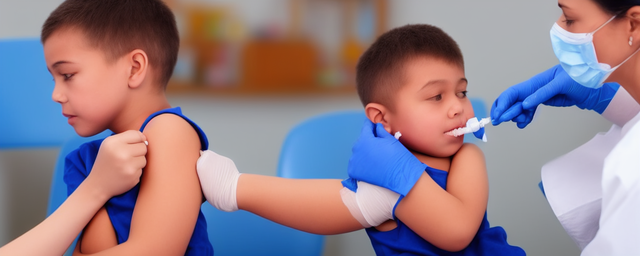
口服轮状病毒疫苗危害
原|2024-04-26 19:40:59|浏览:46
Rotavirus vaccines are oral vaccines that protect against rotavirus infection, a common cause of severe diarrhea in infants and young children. While these vaccines have been shown to be effective in reducing the incidence of rotavirus-related illnesses and hospitalizations, like any medical intervention, they also come with potential risks and side effects.
Some of the potential harms associated with oral rotavirus vaccines include:
1. Intussusception: This is a rare but serious condition where one segment of the intestine slides into another, causing a blockage. Studies have shown a small increased risk of intussusception following rotavirus vaccination, particularly with the first dose. However, the overall risk of intussusception is still very low compared to the benefits of vaccination.
2. Mild side effects: Common side effects of rotavirus vaccines include mild fever, irritability, and diarrhea. These side effects are usually mild and temporary, resolving on their own without any long-term consequences.
3. Allergic reactions: In rare cases, individuals may experience allergic reactions to components of the vaccine, such as gelatin or certain antibiotics. These reactions can range from mild to severe and may require medical attention.
4. Risk of vaccine-associated disease: There is a theoretical risk that the vaccine strain of rotavirus could cause illness in immunocompromised individuals or those with certain underlying health conditions. However, this risk is considered very low and the benefits of vaccination generally outweigh this potential harm.
5. Misunderstanding of vaccine safety: Some individuals may have concerns about the safety of oral rotavirus vaccines based on misinformation or misconceptions. This can lead to vaccine hesitancy and a decrease in vaccine coverage, which in turn can result in outbreaks of rotavirus infection.
Overall, the benefits of oral rotavirus vaccination in preventing severe diarrhea and its complications far outweigh the potential risks associated with the vaccine. It is important for healthcare providers to educate parents and caregivers about the safety and efficacy of rotavirus vaccines to ensure high vaccination coverage and protect vulnerable populations from rotavirus infection.
猜你喜欢
- 茶的分类及代表品种
- 六大茶类的代表名茶分别有
- 茶的类型和代表
- 六大茶叶的分类及产地
- 庙的分类及代表
- 藻的分类及其代表
- 茶的分类及代表茶品特点
- 茶的分类及代表茶
- 简述茶类的分类及其代表性名茶
- 六大茶类的分类及代表茶
- 动物分类及代表
- 糖的分类及代表
- 茶的分类及代表茶叶
- 茶的分类及代表图
- 茶的分类及代表作
- 茶器按质地的分类及代表茶器
- 茶的分类及代表名茶教学设计
- 简述茶的分类及代表性名茶
- 请写出乌龙茶的分类及代表茶
- 法国雅文邑白兰地系列
- 雅文邑白兰地介绍
- 1952年法国雅文邑白兰地
- 法国雅玛邑白兰地
- 纽波利顿獒
- 法国犬品种
- 南非獒犬的优缺点
- 波尔多獒犬寿命
- 波兰狩猎犬
- 波尔多犬和罗威纳犬对比
- 波尔多犬和杜高对比
- 世界十大凶犬
- 护卫犬排行榜前十名
- 大红袍怎么泡效果好
- 大红袍怎么泡不开
- 大红袍怎么泡茶
- 大红袍怎么泡出来没颜色
- 大红袍怎么泡不苦
- 大红袍怎么泡多久
- 大红袍怎么泡才正确的特点
- 大红袍怎么泡没有柴味儿
- 大红袍怎么泡放多少合适
- 花香大红袍怎么泡
- 大红袍怎么泡茶好
- 大红袍是怎么泡的
- 大红袍怎么泡水好喝
- 大红袍用玻璃杯怎么泡
- 大红袍怎么泡味道浓一些
- 十大排名果花茶
- 十大花茶组合排名
- 十大花茶品种大全
- 十大花茶功效
- 十大花茶销量排行榜
- 十大花茶有哪些
- 十大花茶品种
- 十大花茶推荐
- 十大花卉排行榜
- 十大花卉
- 十大花茶调理内分泌
- 九五至尊秦昊明月关山
- 红茶冲泡工艺
为你推荐






































































